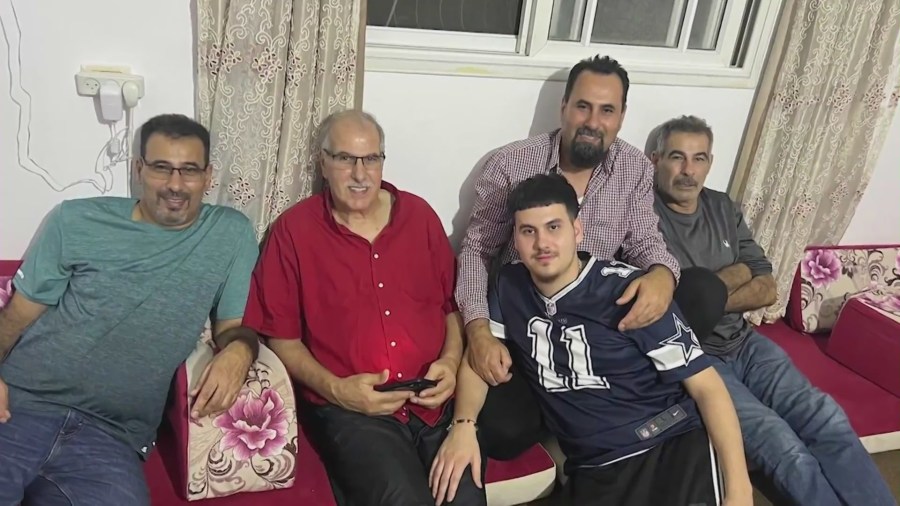The Council on American-Islamic Relations held a news conference in Anaheim Thursday alongside families who have loved ones trapped in Gaza to plead for the safe return of those caught in the war zone.
Riverside County resident Helal Kaoud, whose father, brother and uncles went to visit family in Gaza when the war broke out, stood with her cousins during an emotional plea to get the Palestinian-Americans back home.
“My dad, my 20-year-old brother and four of my uncles who are all U.S. citizens went to visit our family in Gaza,” Helal said, unable to hold back tears. “Two weeks into their vacation, the attacks started, and they are no longer safe and now our conversations have shifted from daily vacation updates to proof of life updates.”
Shamiss Kaoud, whose father is also trapped in Gaza, spoke as well, saying their family is no different from anyone else’s in the U.S.
“We just want this nightmare to be over and bring our families home,” she added.

As hundreds of American citizens are stranded in Gaza, the Greater Los Angeles office of CAIR, a Muslim civil liberties and advocacy organization, organized the press conference in hopes that bringing attention to the issue will push those in power to help.
CAIR-L.A.’s Executive Direction Hussam Ayloush even called on President Biden to take action.
“We still have faith that maybe if enough Americans raise their voices in support of these families, to say every human life matters,” Ayloush said at the press event.
Basic necessities – food, water, medicine and fuel – are limited in Gaza and few trucks carrying humanitarian aid have been allowed in since the region was sealed off by Israel following Hamas’ bloody attack on Oct. 7.
“Our father and family have been told by the U.S. Embassy three different times to make their way to the border,” Shamiss explained. “All three times they’ve made that dangerous trip, waited hours only to be told the border will not be opened and they need to go back.”
The Rafah border crossing opened for the first time since the war started in Gaza over the weekend, but it was unclear how long it would remain open for foreign citizens to depart through Egypt.
The Kaoud family said they are continually waiting for updates from their loved ones.
“When they do get internet or their electricity is turned on for a couple of hours a day, they reach out to us and tell us they’re okay,” Helal said. “The bombardments are getting close to where they’re at. They hear them. They see the smoke and they never know if it’s going to be them.”
The family said they have been in touch with the state department, the U.S. Embassy and government officials daily trying to get the help they need.











